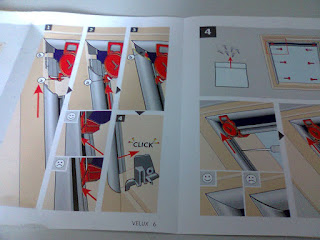It's easy to give the wrong impression in email; it's so easy to write and send that there's the risk of treating it like everyday conversation – forgetting that in everyday conversation there's a small matter of a shared physical context (including, particularly, facial expression). Some people choo†se to address this problem by introducing a way of communicating facial (and other) expressions, formed – usually – from a mixture of punctuation marks, numbers, and mathematical symbols. An underlying convention was that they often had to be "read" as if they (or the reader) was lying on their side: ":-)" was a smiling face, ";-)" was a wink, "<3" was a heart (often used as a verb, as in "I <3 New York"), and so on. A word was coined to refer to these signs – emoticon, being a fairly obvious porte-manteau word formed from emotion and icon (I think Lewis Carroll‘s reputation as a creative originator of such hybrids is safe).
Sometimes the combinations of glyphs could be extraordinarily imaginative; I particularly. like the one that depicts a sceptical face:
> : /
(No, I do like it, honest; it reminds me of Beaker.)
In time, people tried to outdo each other, by dreaming up more and more intricate emoticons, suitable for a particular context. For example, I once met one (that I can't find offhand) that gave the message I'm tired and I just checked in to this group before going to bed. I'm too tired to answer fully now, but will do tomorrow. There's a fairly comprehensive list here. (That fairly isn't as patronising as it may sound; there was at one time such a fad for thinking up new emoticons that compiling an exhaustive list is just impossible. And the story is much more complicated than I have made it. That article is well worth a read.)
Origin
1990s: blend of emotion and icon.The Collins English Dictionary confirms this, with the curve starting at the turn of the decade:
 |
| Word usage trend: emoticon |
<justification dubious_word="Then">
I think it‘s reasonable to think that emoticon came first. A single character occupies (in many cases) only a byte. In the '80s, RAM was much more limited than it came to be a few years later. People who used computers tended to have been educated in the '60s and '70s, when hard disk space was even scarcer, so they had learnt to be extremely parsimonious (and were slightly contemptuous of business-users who didn't know or care about such things).
<autobiographical_note>A fully-fledged graphic could occupy several Kb (depending, of course, on size and intricacy).
I recall, in the '90s, being sternly ticked off by an erstwhile engineering student, whom I had first met in the early '70s, for accepting the default setting that copied his original email into my reply. He didn't know that I acquired the habit in the IT industry [dammit], where Quality Assurance engineers needed an exhaustive audit trail. The engineers in the '90s, educated in the '80s, cared less about hard-disk space. Grandmothers and egg-sucking came to mind.
</autobiographical_note>
</justification>
...in the '90s the word emoji started to appear. It came from Japan (or perhaps a Japanese community studying in the West). The Oxford Dictionaries website says
Origin
1990s: Japanese, from e 'picture' + moji 'letter, character'.
Hmmm...? The entry for kanji [PS: a writing system] in the same dictionary says that just ji means character. This calls for further study. (But not now, when I have a train to catch,)
So, (perforce, briefly) we have two more-or-less interchangeable words (well, not really*, but that‘s the way usage is tending), both starting "emo...", but with no etymological link. Even the order of the etymologies is different: the e- of emoji means much the same as the -icon bit of emoticon.Not that this is of earth-shattering importance. But it excites me in a way that I imagine biologists are excited by discovering independent evolution of similar structures – convergence such as the human eye and the warnoviid dinoflagellate.
I'm outta here. b
Update 2015.07.28 12:10 – Added inline PS and fixed an embarrassingly large number of typoes, introduced by my little Android machine.
Update 2015.07.28 16:15 – Further analysis of emoji in Japanese
Here's what Google Translate does with emoji.
And with mo.
Which might begin to suggest that the Oxford Dictionaries derivation ('moji = character letter') may be mistaken: it's e [=picture] + mo [=also] + ji [ = character]. It is? This, though attractive on the outside (or as the Romans said speciosus [whence our 'specious']), depends on an analysis of the Japanese based on a transcript in Roman letters.
But what about the characters themselves? The character that represents mo (a cross between a hockey stick and a crucifix – a sort of inverted crosier-head (も [=also]), if you have the appropriately pious background) doesn't appear in the three-character transcription of emoji; 絵文字 [ = picture | sentence | character]. Which suggests that the 'Oxford's wrong' argument doesn't hold water.
So the conclusion ...inconclusive. This calls for a new word: inconclusion...
Update 2015.07.29.18:45 – Added this footnote (not before time, as it justifies the distinction some people [including me] make).
* An emoji is an actual graphic image, such as I used in the last update.
Update 2015.07.31.14:00 – Added this note on space.
As an example of the file sizes involved, the <img> tag that I use to produce these contains a URL (so that the storage costs were incurred [once only, however many times people use it] by usingenglish.com [and the ‘cost‘ to my blog {not that it actually costs anything} is only a few dozen bytes. This image (which I have captured) occupies [on my system – what the Blogger software does with it is anybody‘s guess] nearly 3 Kb.
 |
| The 3Kb emoji - you‘d never catch an old hand spending that much on ‘a bit of eye-candy‘ like this. |







